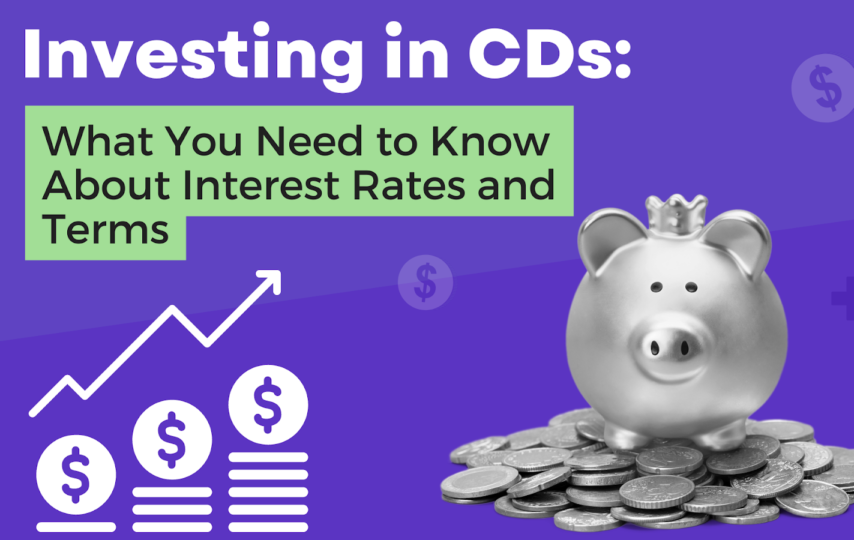Saving money is important if you want a stable life in the long run. People would open savings accounts to store some of their earned money. Another option people can consider to gain money through a bank is a Certificate of Deposit (CD). In this article, we’ll learn what a Certificate of Deposit is and a few notes and terms about it.
What is a Certificate of Deposit?

(Image Source: iStock Photo)
The best way to define a Certificate of Deposit is that it’s almost similar to a savings account but with a twist. It is a savings product that earns interest over a fixed period. What makes it different from a savings account is that the money in a CD must remain untouched. There must be no withdrawals or activities from CD during its term, or there will be penalties.
With that said, let’s cover the other notes that we need to learn about the Certificate of Deposit.
Notes Regarding CDs
You must know the CD account rates if you’re inquiring about CDs. CD rates in Florida might have an annual percentage rate of 4.60%. Also, CD rates vary by state, meaning that rates in Florida can differ from other states.
Before we discuss some important notes in regard to availing Certificate of Deposits; be aware that CD account rates vary by region or state. For example, CD rates in Florida average around 4.60%. If you decide to invest in CD from somewhere else, the rates are different
Anyways, let’s cover the notes you need to be aware of when you’re inquiring about a Certificate of Deposit. Here they are as listed:
- Safer Alternative to Investing in Stocks
Stocks have a reputation for being an unstable investment compared to a CD. Purchasing stocks can be a bit of a gamble as the stock market’s health influences their value. It’s not guaranteed that you’ll get value out of it. Certificate of Deposits offer the same benefit as purchasing stocks but are generally much safer. They offer you a guaranteed rate of return, whereas stocks can get devalued at worst.
- Top CDs Mean More Returns
Before discussing this part, return values are still influenced by CD account rates and rates used by your region. Banks that offer top-paying CDs provide better interest rates than most savings accounts. Higher-leveled Certificate of Deposits may require much investment but may provide a higher return than standard CDs.
Note that duration also plays into the return rates of these top-paying CDs. You’ll need to be patient until the period is over.
- Try Shopping Around for Nationally-available CD Plans
Some banks may offer plans using the national CD rates instead of CD rates by state. These nationally-available plans can be five to eight times larger than the average plan for each term. So, inquiring with your bank or shopping around for national rate plans isn’t a half-bad idea for getting big returns.
Take note, though, if you’re getting returns from a national-rate CD plan, you’ll invest a huge amount. Even more, if you’re going for the nationally-available CD plans with a long-term plan.
- Check your Rates
Setting up a Certificate of Deposit plan requires checking your age group and account type. For instance, if you’re above 65, you must avail of a plan that uses CD rates for seniors. If you’re running a business establishment, check for plans that utilize CD rates for business accounts.
- Check If There are Exit Plans Available
Depending on the bank providing your Certificate of Deposit, you should check if they have exit plans. There should be options even if you lock into a duration. You should be able to end a plan earlier in case of an emergency or if you want to change plans.
Terms to Use in Certificate of Deposits

(Image Source: iStock Photo)
Now that we’ve discussed the notes you need to consider when availing of a Certificate of Deposits. Here are some terminologies you might encounter while applying for one. Remember to take notes so that you’ll get oriented on what these terms are and what they mean.
- Interest Rates
Interest rates are fixed or locked rates of return over a set period. Interest rates tell you how much money you get once the term period is over. For example, CD rates by state are interest rates that vary from region to region. At the same time, CD rates are set for certain demographic or account types – seniors and businesses.
- Term
The term describes the duration of the Certificate of Deposit. For instance, if your CD plan takes six months, you won’t touch the money in it for six months. Keep in mind that failing to meet that condition often results in penalties. However, the exception to that is when an emergency arises. You can negotiate with your institution whether to halt your CD plan due to urgent matters.
- Principal
The principal is the amount you have agreed to deposit when you open the certificate of deposit. Remember that the rule has some exceptions, such as specialty CDs using different policies.
- Institution
Two places pertain to when you use the term “Institution”. It can be either your providing bank or the credit union you are registered with. At your institution, you can open your CD, and they’ll orient you on the terms of the agreement. The terms of the agreement for a Certificate of Deposit can range from penalties to other instructions such as reinvestment policies.
Avail of a Certificate of Deposit Now!
At this point, you must be musing about whether you’d want your Certificate of Deposit. If you’re up to investing some money to obtain more in return after some time, go ahead. The great thing about CDs is that they offer a return that you can predict after a set term.
On top of getting a guaranteed money return after the term, it’s pretty much a low-risk investment. You won’t have to worry about stock recession or other factors affecting the value of stocks. So, if you want to invest and get returns with minimal risks, contact a bank or credit union for a Certificate of Deposit.








